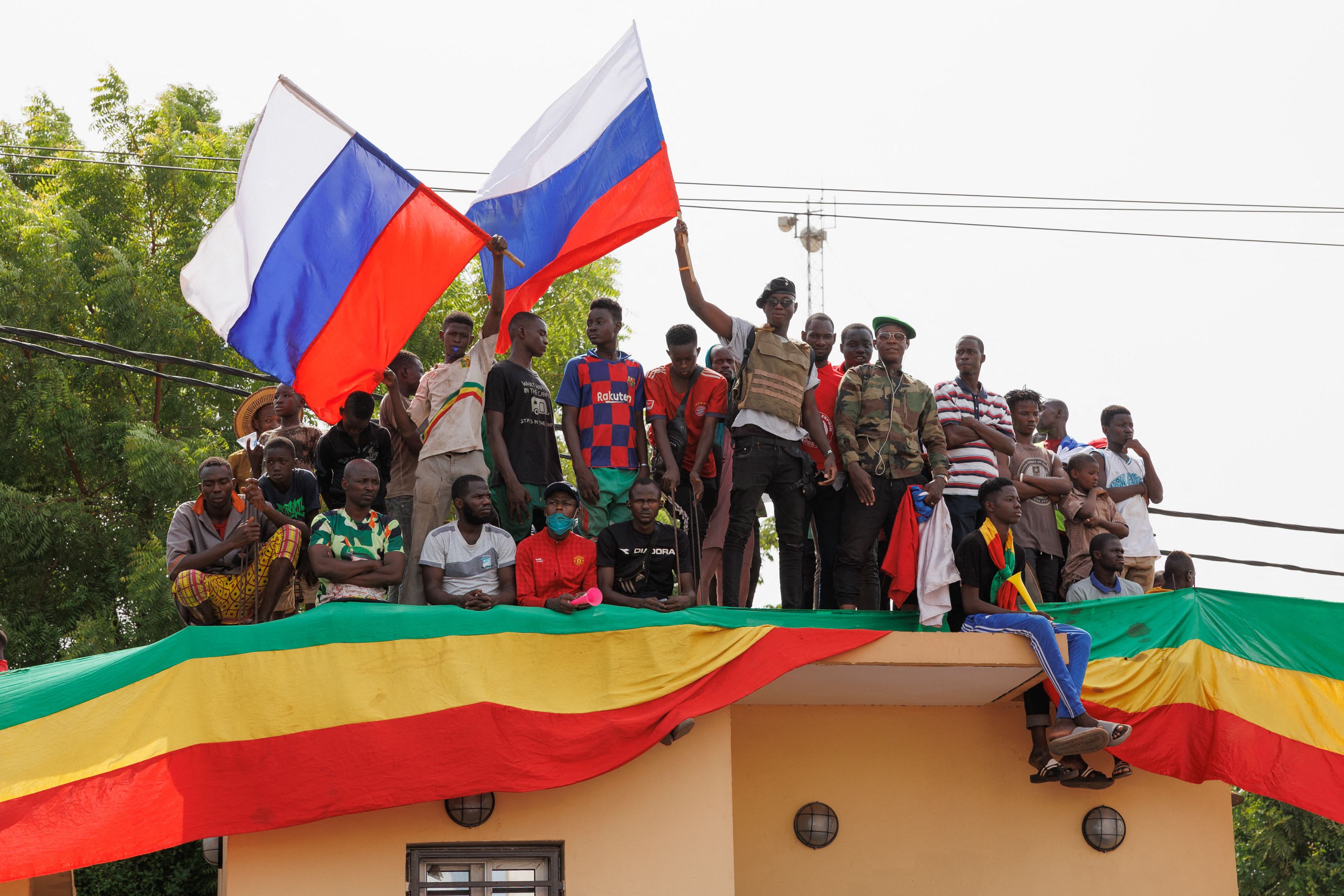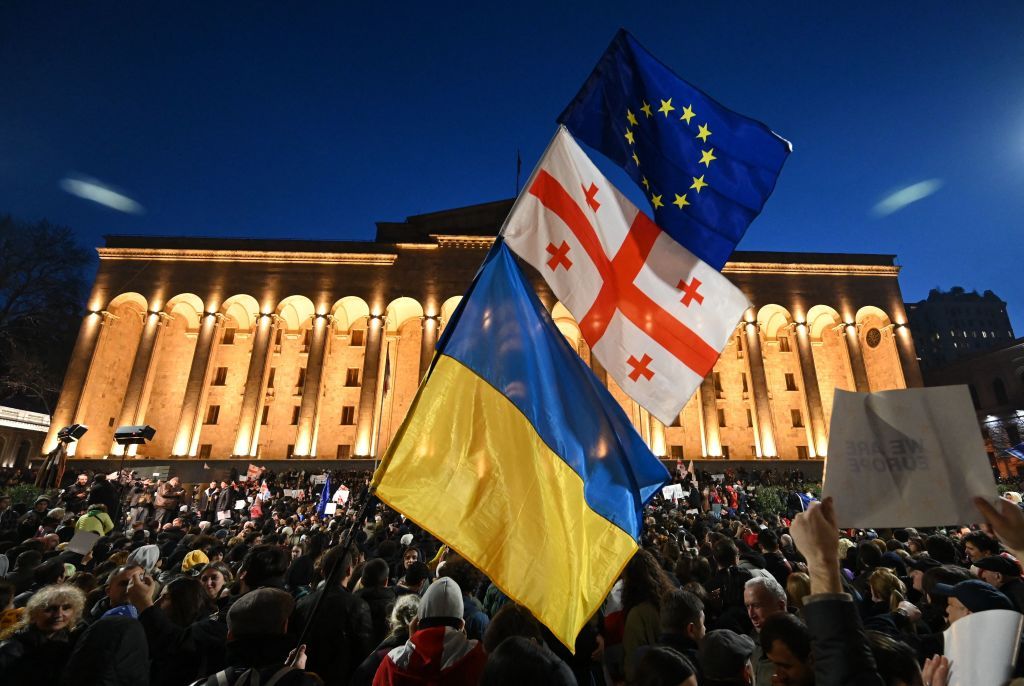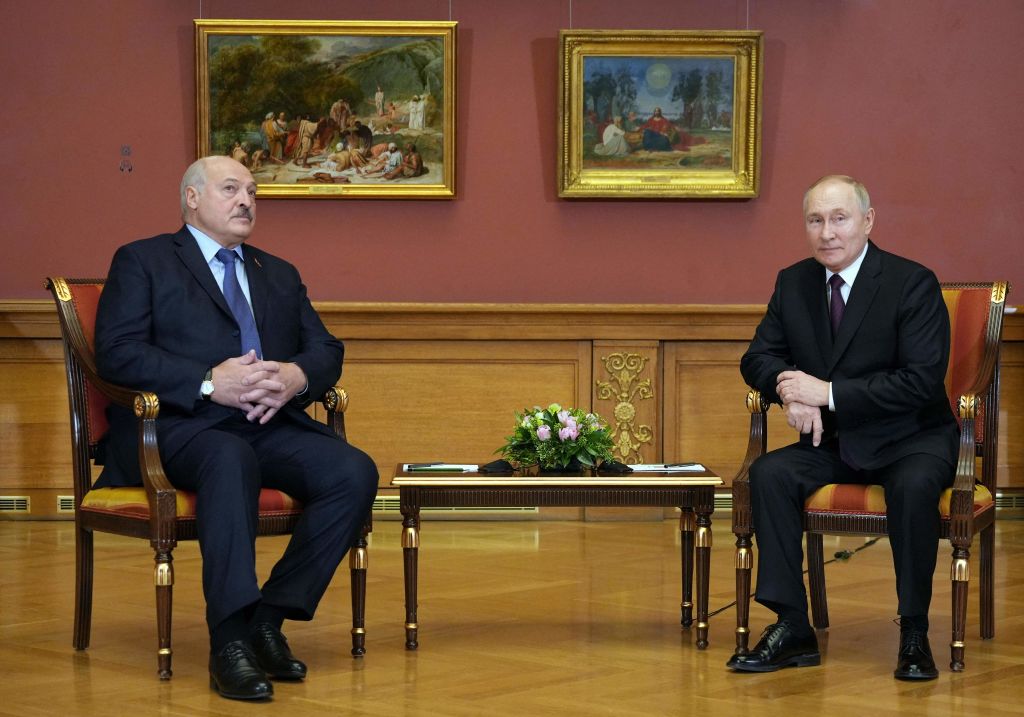Roland Freudenstein: Russia’s war and the Global South – a way forward for the West

Editor's Note: The opinions expressed in the op-ed section are those of the authors and do not purport to reflect the views of the Kyiv Independent.
"We must complete our recovery from the embers of dead empires in a way that does not plunge us back into new forms of domination and oppression."
- Martin Kimani, Kenya's UN Ambassador (Feb. 22, 2022)
Since March 2022, there has been a recurrent phenomenon in the corridors of Brussels: Whenever Western Europeans feel cornered by Poles or Balts who criticize their responses to Russia’s full-scale war, they divert to talking about the Global South.
Mentioning the apparent indifference of India, Brazil, Indonesia, and countries in Sub-Saharan Africa to Ukraine has become Western Europeans’ go-to.
First of all, mentioning the Global South redirects attention toward the region that has been France, Spain, and Italy’s favorite security concern for many years.
Second, it directs attention to the global sins of the West, such as the U.S.-led invasion of Iraq in 2003, which is an evergreen topic in places like Brussels.
Third, for many reasons, it removes Central Europeans’ halo of geopolitical righteousness and moral superiority, due in part to their support for events such as the 2003 invasion of Iraq.
These debates in Brussels point to a larger problem.
While, since the beginning of Russia’s full-scale invasion of Ukraine, the West is more united than ever before, Russia is far from isolated: China has, in many respects, taken Russia’s side, and several countries in the Global South are sitting on the fence when it comes to condemning Russia’s brutal aggression. There is even talk of the resurgence of the Non-Aligned Movement.
I propose to tackle the problem in three steps. First, by trying to understand a non-Western perspective on the war. Second, by developing a counter-narrative. And third, by outlining next steps.
Russia’s full-scale war as seen by the Global South
What are the key arguments of the states that refuse to take sides?
First, in many states that comprise the Global South, the West’s response to Russia’s full-scale war is considered hypocritical.
This refers back to the West’s colonial and imperial past, but also more immediately to cases of Western intervention in the Global South, such as the NATO-led military intervention in Libya in 2011, the U.S.-led invasion of Iraq in 2003, and the alleged indifference of the West to conflicts in the South, like those in Yemen and Ethiopia’s Tigray region.
The familiar Russian rhetoric about it having “gotten up from its knees” and waging a so-called anti-imperial war against a condescending “Collective West” does catch on in the South.
Second, the hypocrisy accusation also applies to the way that Europe has dealt with refugees.
The argument goes that, while an influx of largely non-white, non-Christian refugees in 2015 and 2016 strengthened xenophobic populism and destabilization in many states in Europe, millions of “white and Christian” Ukrainians were welcomed with open arms.
Third, many countries in the Global South have become dependent on Russian arms and food exports, or Chinese investment and technology, which makes them much less receptive to Western attempts to mobilize them against Russia.
India is a first-class example with its longstanding history of Soviet and Russian ties. Many states in Sub-Saharan Africa are by now strongly dependent on China.

Toward a Western response
The West, including Ukraine, should, first of all, treat these arguments seriously and respectfully and not brush them aside without deeper reflection.
Second, one of the primary goals should be to counter the “East-West proxy war” narrative that the Kremlin is spinning and which catches on with some actors in the Global South.
The message instead needs to be that Ukraine is fighting an anti-colonial and anti-imperial war both for its own survival and for global principles – and that the West is supporting Ukraine’s efforts to do so.
Of course, Western Europe and the U.S. must come to terms with their own legacies of colonialism and imperialism. While these attempts have been undertaken in the West for decades, Russia and China are new culprits. The quote by Kenya’s UN Ambassador at the beginning of this article shows that this is also seen by representatives of the Global South.
Third, Ukraine itself must keep trying harder to convince the Global South.
Ukrainian Foreign Minister Dmytro Kuleba’s trip across Africa in October 2022 and plans for a second trip to the continent in the summer for a Ukraine-Africa summit are excellent examples.
Central Europeans also have an important role in communicating with the Global South. Both Ukraine and many states in Central Europe do not have the same history of colonization in the Global South. Czechs and Slovaks, for example, have been colonized themselves – first by the Austro-Hungarian Empire, then by Nazi Germany, then later by the Soviet Union.
Fourth, accusing Europeans of hypocrisy about refugees is disregarding a couple of important differences between 2015 and 2022: Of the Ukrainians in the EU, over 80% are women and children, whereas refugees from other parts of the world since 2015 are predominantly young men. In the eyes of the receiving population, this makes a difference.
As perceived by the public, the cause for flight in 2022 was clearly Russia's war and immediate personal danger, whereas other refugees are often seen as partly motivated by economic factors.
And, of course, culture matters. For many Central Europeans, civilians from a neighboring country with a language that is not too dissimilar are received differently than those from halfway across the planet. While this shouldn't matter, in combination with other factors, it does – as it would in many places around the world.
Fifth, while references to wars in the South are justified, the differences between the 2003 invasion of Iraq and Russia’s war against Ukraine, for example, must be emphasized.
While the 2003 "war of choice" was a huge mistake and a clear violation of international law, comparing Ukraine to Iraq is wrongly comparing Zelensky to Saddam. War crimes were not a systemic element of the U.S.-led invasion. The U.S. personnel responsible for the events at Abu Ghraib did not get medals as the Russian units that attacked Bucha and Irpin did. No territories were annexed.
And as much as the West got criticized in 2011 for its armed removal of Muammar Gaddafi in Libya on the grounds of Responsibility to Protect, it was also heavily criticized in the Middle East for not having intervened against Bashar Al-Assad in Syria.
As for the wars in places like Yemen and Tigray, these are not wars of annihilation by one country against its neighbor like Russia’s full-scale war. If the Global South were as united about who the aggressor is and what to do as the West is about Russia’s war, the West would likely get involved with more than just mediation attempts and votes in the UN General Assembly.
Most importantly, the global implications of Russia’s aggression against Ukraine must be emphasized time and time again.
If Russia wins or at least appears to have made territorial gains, the world will become a much more dangerous place, especially in the Global South.
What the Kremlin and the Chinese Communist Party define as a “multipolar world” is a world in which great powers can do whatever they want in their “spheres of influence” – borders can be changed by force and universal human rights completely lose their meaning. This cannot be in the interest of any country besides authoritarian “great powers.”
Finally, the West must more effectively tackle states in the Global South’s dependencies on Russia and China for energy, security, food, and infrastructure investments. Ukraine’s grain export deal with Russia is a constructive example.
It must be understood that the conditionality of good governance, the rule of law, and universal human rights to which all UN members have committed themselves, are indispensable to those efforts and not condescension by the West.
Next steps
- Ukraine must win the war and its allies must support its efforts more effectively. A Ukrainian victory and a clear Russian defeat will help to convince countries in the Global South that to stand with Ukraine is to be on the right side of history.
- Neither Ukraine nor NATO member states should confuse the West’s unity with the international mood regarding Russia’s full-scale war. We should clearly own up to past mistakes while insisting on the uniquely criminal and dangerous character of Russia’s war.
- Respectful communication must go hand in hand with concrete efforts to address the material issues and dependencies of the Global South.
- Ukraine and Central European states have special credibility here. They should take a leading role in communicating with the Global South, reiterating the fatal global impacts of anything Putin could present as a success.
Keeping these rules in mind will go a long way in addressing the situation in a constructive way. It will also help Central Europeans to stand their ground in those Brussels debates.














